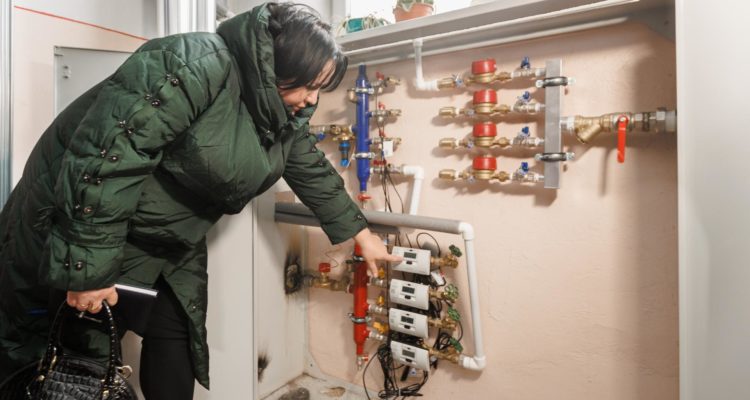Residents of 123 apartments from Bălți municipality were connected to a more efficient central heating system, which will generate consumption savings of up to 30 percent. At the same time, they will have access to centralized hot water, which was not available in the city since 1999. The vertical distribution of thermal energy from the three multi-apartment residential buildings in Bălți municipality was switched to the horizontal one thanks to the support provided by UNDP Moldova and the Global Environment Facility (GEF), in partnership with Green City Lab Moldova and CET-Nord.
The new heating distribution system gives apartments’ owners the opportunity to decide on their own when to turn on or off turn the heating, to adjust the temperature level, depending on their personal needs and comfort. Each apartment has its own meter that monitors consumption, based on which the bill will be issued.
“The Bălți experience and the one that we have in Chișinău, where overall six multi-apartment residential buildings were connected to horizontal central distribution of heat with support of UNDP and GEF, can serve as an example of good practices in the energy area, that can bring the change and improve country’s energy security,” said Andrea Cuzyova, Deputy Resident Representative to UNDP in the Republic of Moldova.
The absence of a centralized hot water distribution system made some householders from Bălți municipality install electric boilers, so as to have access to domestic hot water. This option is much more expensive and not energy efficient. In addition, it generates higher CO2 emissions into the atmosphere.
“Modernization of the multi-apartment residential buildings from Bălți with support of UNDP and GEF contributes to a safer and more ecological environment. At the same time, it offers consumers quality, safety, and the needed heating comfort,” mentioned Marian Brînza, acting General Director of CET-NORD.
As the heating system was switched to the horizontal one, some of the residents who were using autonomous heating systems came back to the centralized one. Others say they plan to connect next year.
“Last year, the residential building across the street modernized its heating system and their lower bills during wintertime triggered discussions among inhabitants of our building. The owners insisted that we switch to horizontal heating because it offers more comfort with less heating consumption. The benefits that our neighbor building received convinced us as well,” said Tatiana Plesca, president of the Homeowners Association of one of the buildings that switched to the new heating system.
Individual thermal points were installed in each of the three blocks in the municipality of Bălți. The common thermic energy distribution infrastructure is located to a space of common use, while on each floor the apartments are individually connected to the distribution network. Owners who have switched to the new heating system had either to cover on their own the expenses for the infrastructure modernization works in their own apartment or to access financial support through energy performance contracts. This type of contract gives consumers the opportunity to repay the investment from the savings on the heating and hot water bills over the next five years.
For this pilot project in Bălți, UNDP Moldova and GEF have allocated approximately US$98,000.
The vertical thermic energy distribution system, widely used in Chișinău and Bălți, interconnects apartments and the owners do not have the possibility to adjust the consumption of energy. Therefore, bills are issued based on the common consumption recorded at branch levels and payments are made via the housing management entity, that divides the total amount between individual consumers, according to several criteria, including apartments’ area.
